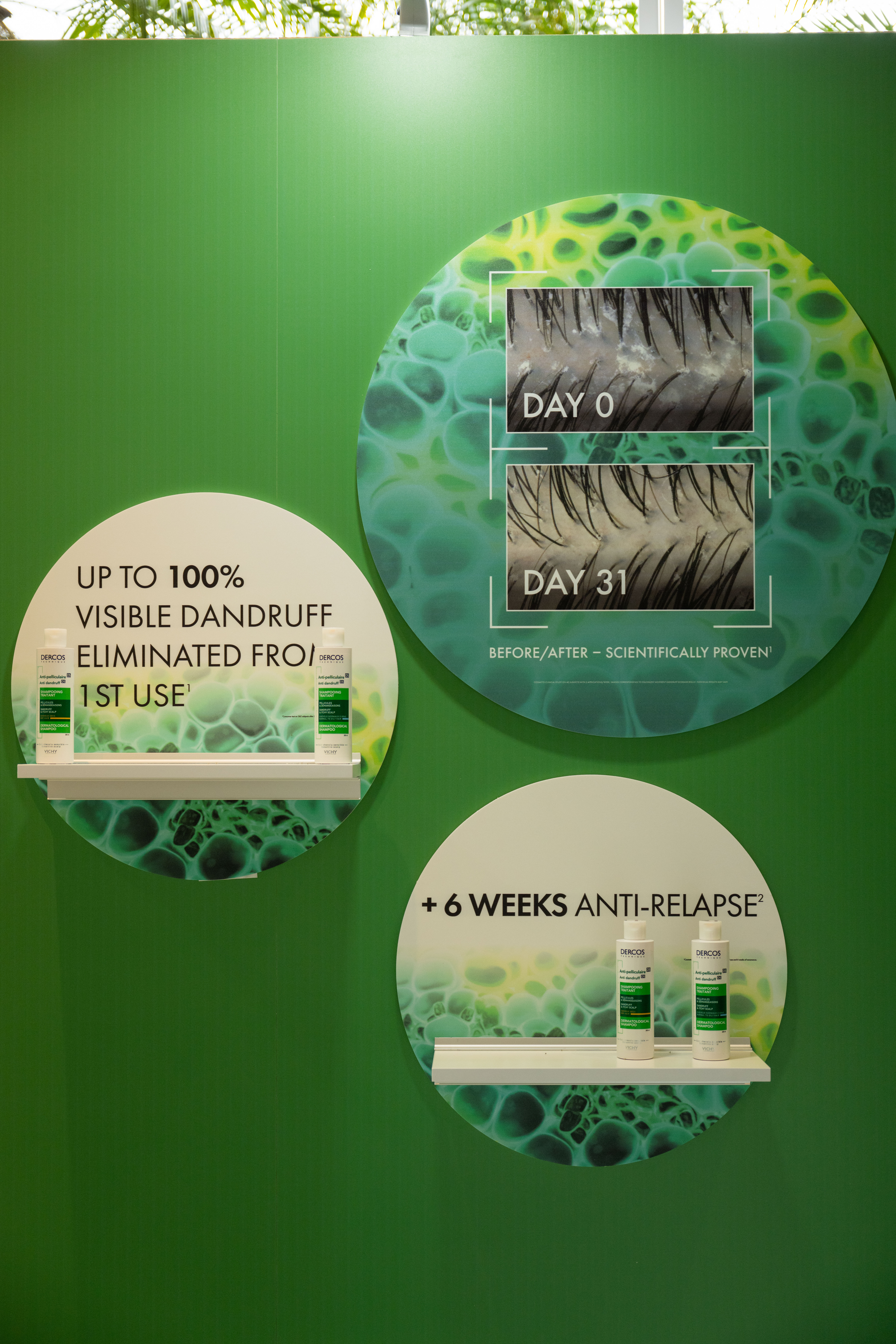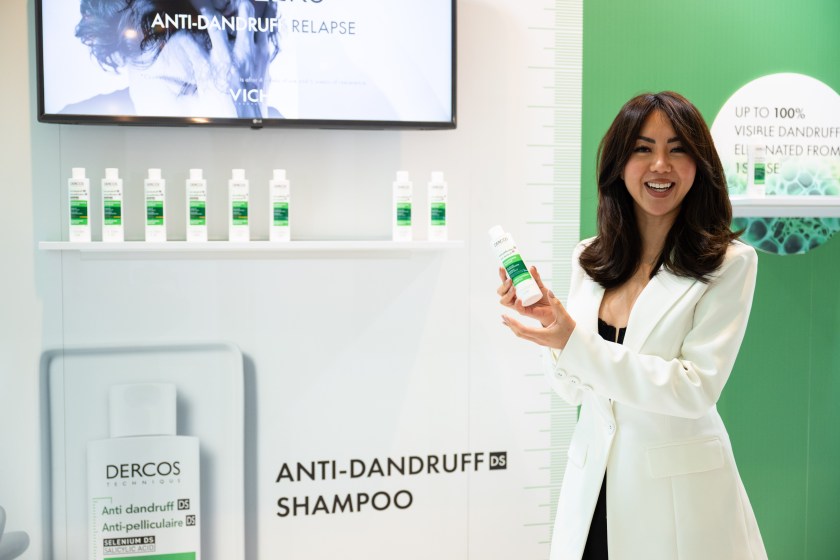Why Skin Practitioners Shouldn’t Ignore Scalp Health

An innovative anti-dandruff shampoo range has launched in Australia, here’s why it is the new dermatological breakthrough.
Dandruff, a common scalp condition affecting nearly 50 percent of the population, has long been a source of annoyance and discomfort for many. Flaking, itching, and irritation can wreak havoc on one’s self-esteem and overall well-being.
Recognising the need for an effective solution, DERCOS, by Vichy Laboratoires, a globally renowned hair and scalp expert, has introduced its cutting-edge dermatological anti-dandruff shampoo range to the Australian market. This launch promises to revolutionise how dandruff is managed and bring relief to thousands battling this persistent issue.




Just like the skin on our faces, practitioners can help improve clients’ scalp health by recommending the right ingredients. Available for both dry and normal to oily hair types, DERCOS shampoo’s innovative formulation incorporates 1% Selenium Disulphide, known for its scalp microbiome-maintaining properties, and 1% Salicylic Acid, renowned for exfoliation to remove dandruff flakes.
Additionally, Vitamin E, a powerful antioxidant, and Ceramide R for scalp moisture support are included in the formula. The result is a premium-textured shampoo with an inviting orange hue and a pleasant fragrance.

What sets the DERCOS anti-dandruff shampoo range apart is its commitment to gentle and scalp-friendly formulations. The range is devoid of sulfates, parabens, and colorants, ensuring that individuals with sensitive scalps can also enjoy the benefits of these products – without worry.
DERCOS’ arrival in the Australian market was celebrated at an intimate media lunch event in Melbourne this month, and to delve deeper into the science and innovation behind the DERCOS anti-dandruff shampoo range, we had the privilege of interviewing two distinguished experts in dermatology: Professor Rod Sinclair and Dr. Leona Yip.

Dr Yip, what are some of the common scalp conditions patients present to you with and how do you treat them?
Dr Yip: One of the commonest scalp conditions I see is dandruff. Some patients come in specifically seeking treatment for dandruff that has been long-standing, but more commonly they come in for treatment of other scalp conditions or hair loss concerns and I incidentally spot dandruff they may or may not have been aware of that they also need treatment for. Not surprising since dandruff is very common and affects 50% of the general population.
The other most common scalp conditions that present to me are seborrhoeic dermatitis, eczema, psoriasis, folliculitis or acne, sun spots and skin cancers. By the time patients present to me at the specialist level for treatment, often they would require prescription treatments e.g. anti-inflammatory, anti-fungals, antibiotics etc, depending on their diagnosis. I would always recommend scalp care products e.g. anti-dandruff shampoos, exfoliants with salicylic acid etc to complement my treatments to maximise results.
Do skin conditions on the face sometimes extend to the scalp?
Dr Yip: “Yes, it can. Common skin conditions that affect the face e.g. seborrhoeic dermatitis, eczema, psoriasis, acne can also similarly and commonly affect the scalp.”
How is the skin on the scalp different to the rest of the body?
Dr Yip: “Compared to skin on our face and body, the scalp has heavier density of hair follicles, sweat glands and sebaceous glands that produce sebum (skin oils). The presence of hair also traps heat, sweat and moisture that can cause or aggravate conditions that commonly affect the scalp e.g. dandruff, seborrheic dermatitis, eczema, folliculitis etc. However, the principles and approach to scalp care is quite similar to skincare, say for our face; except we also need to consider haircare in addition. The four basic steps for scalp care should include regular cleansing, moisturising, exfoliating and sun protection. There is no “once size fits all” when it comes to scalp care – choose products that are tailored to scalp type and condition e.g. dry versus oily scalps, anti-dandruff shampoos etc.”

Professor Sinclair, is scalp flakiness always dandruff or could it be the sign of something else?
Sinclair: “Scalp flakiness could be a sign of psoriasis, seborrheic dermatitis, atopic dermatitis, contact allergic dermatitis or tinea capitis, as well as dandruff.”
How much does lifestyle and diet play a role in scalp health?
Sinclair: “Diet almost has zero impact on scalp health as far as the scientific literature goes. Certain nutrients can promote wool growth but there is no data available on human hair. Iron deficiency could possibly cause hair shedding, but this is very controversial. Lifestyle choices, i.e., hair washing, dyeing, straightening and permanent waves and hairstyling techniques can damage hair and need to be done carefully.”
With over 50 years of dedicated research and expertise in scalp health, DERCOS has earned its reputation as a trusted leader in the field. It’s unique anti-dandruff shampoo range, recommended by a staggering 50,000 dermatologists worldwide, represents a significant step forward in targeting dandruff at its root cause.
The DERCOS shampoos incorporate a groundbreaking dermatological formula that has demonstrated the ability to eliminate up to 100 percent of visible dandruff from the first use, with a remarkable anti-relapse effect that maintains dandruff control for up to six weeks.
Read the latest issue of SPA+CLINIC below:
There are 5 ways you can catch up with SPA+CLINIC
- Our quarterly print magazine, delivered to your door. Subscribe here.
- Our website, which is updated daily with its own completely unique content and breaking news.
- Our weekly newsletter – free to your inbox! Subscribe here.
- Our digital magazine – click here to view previous issues.
- Our social media – see daily updates on our Instagram, Facebook & Linkedin
The post Why Skin Practitioners Shouldn’t Ignore Scalp Health appeared first on SPA+CLINIC.
